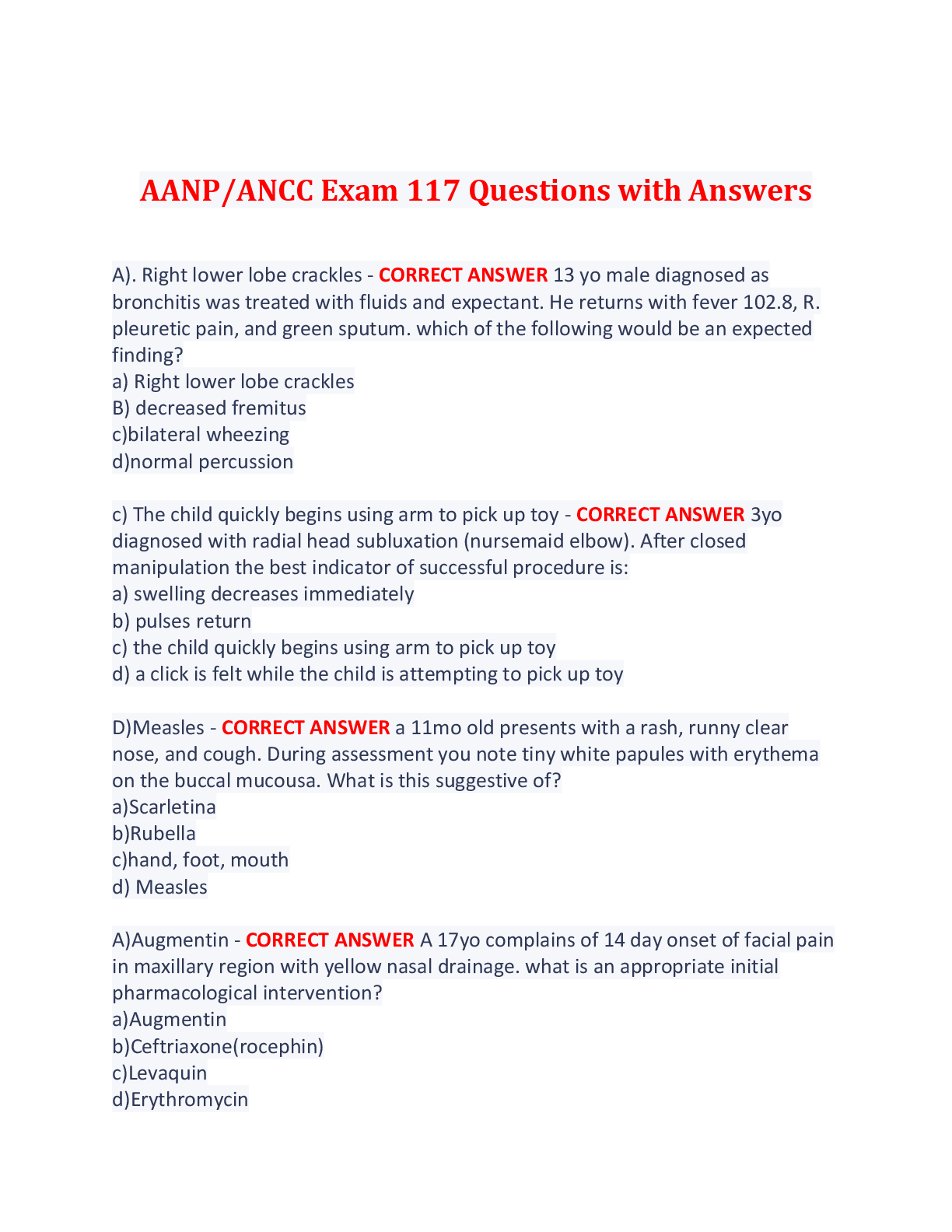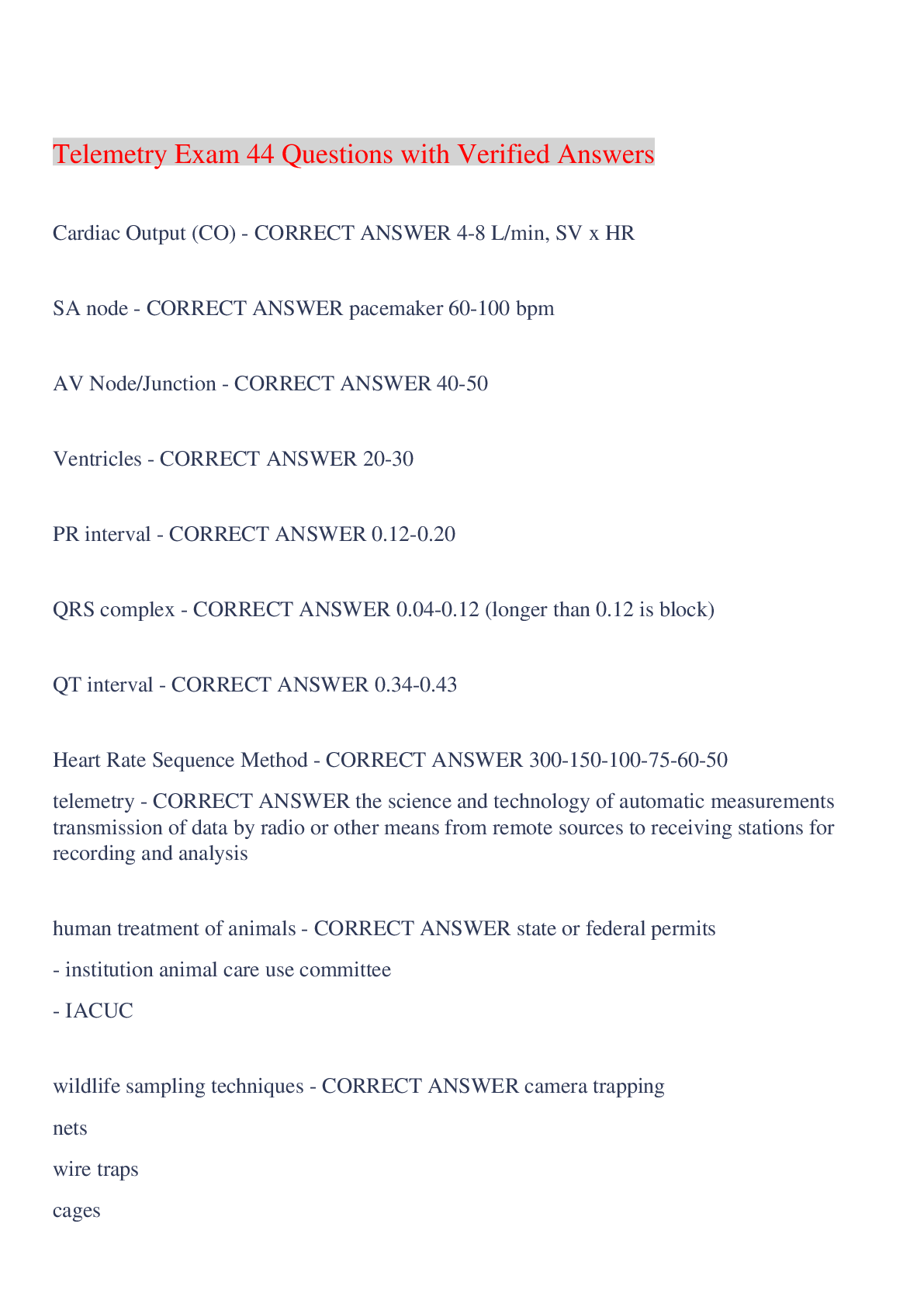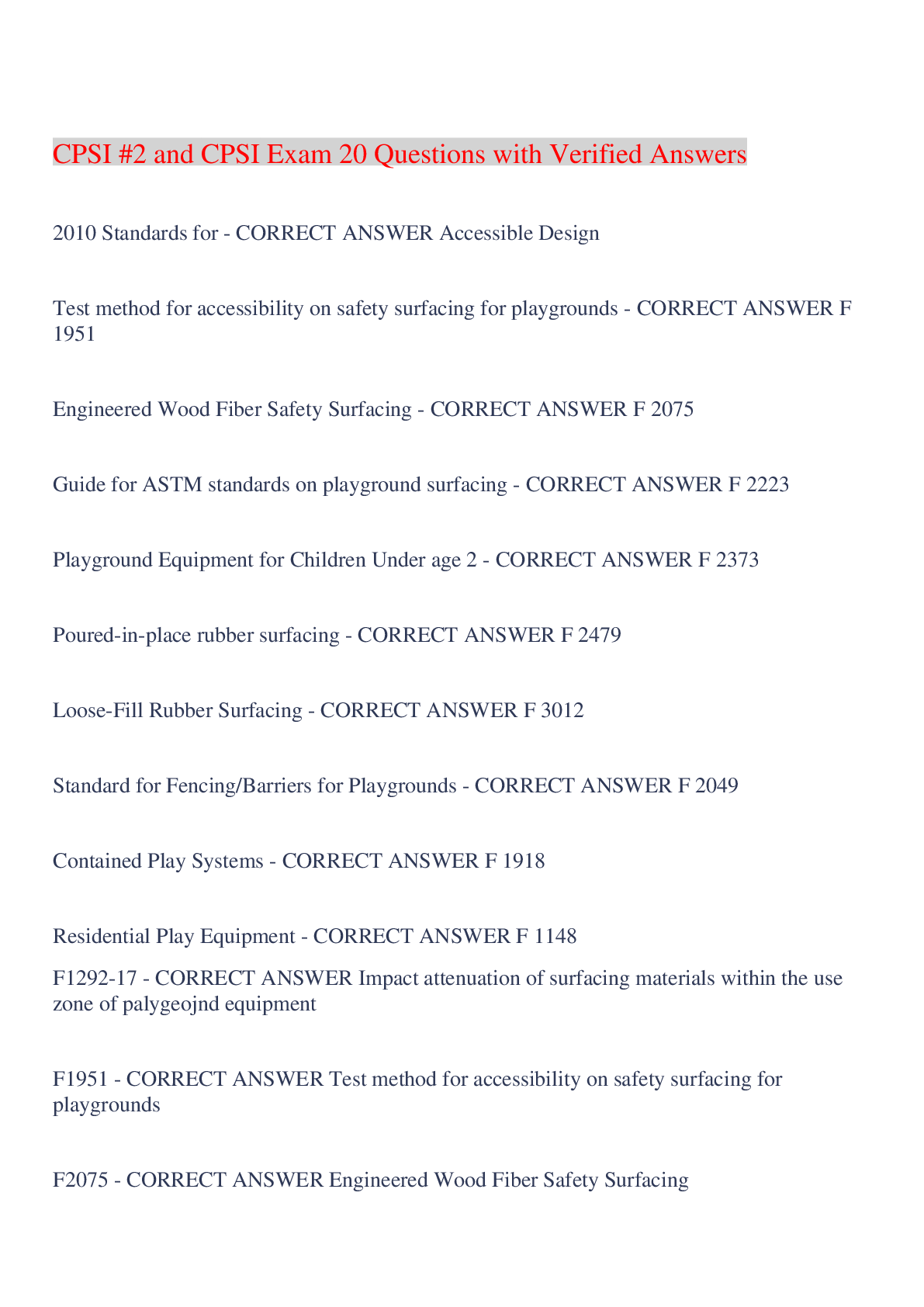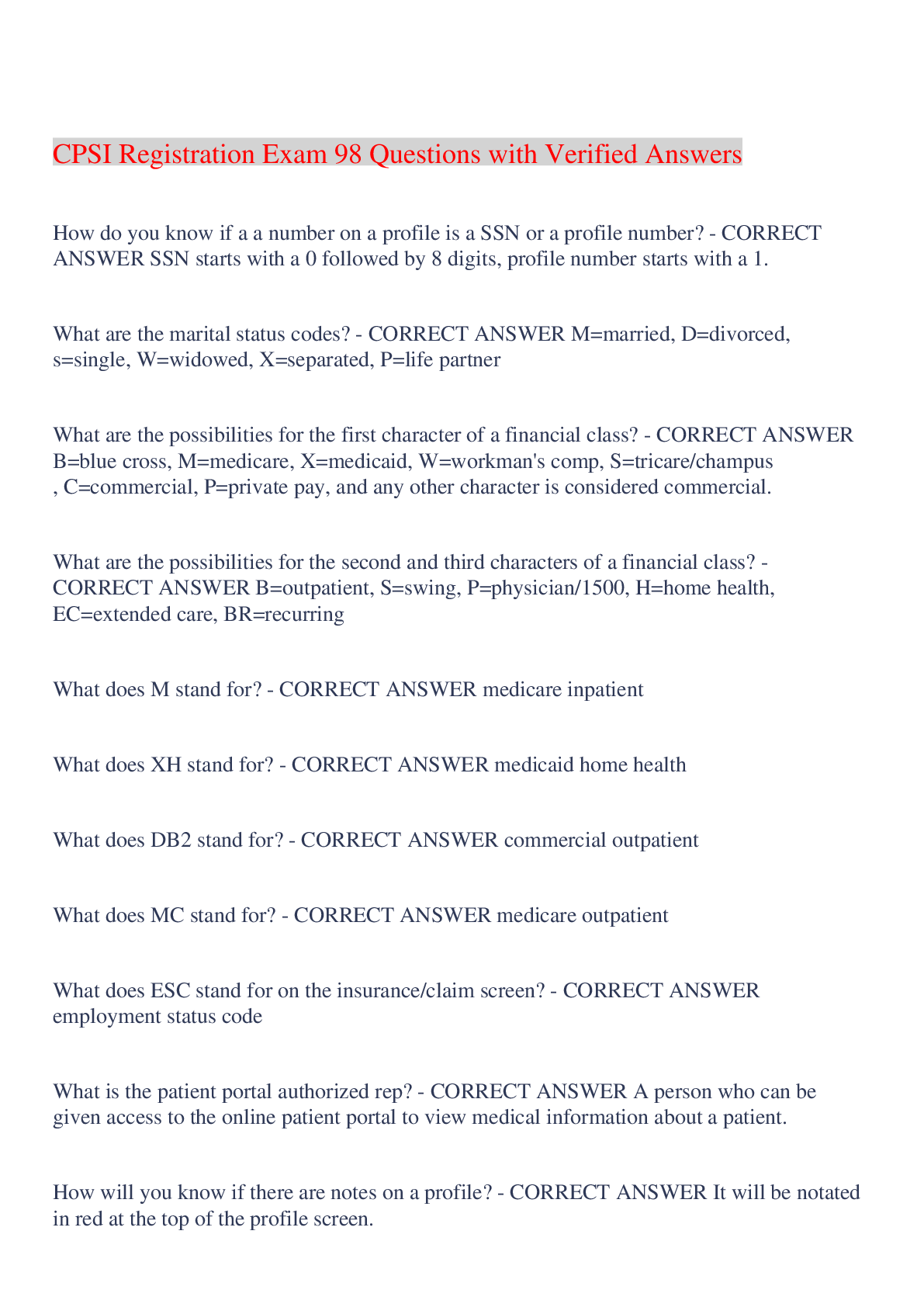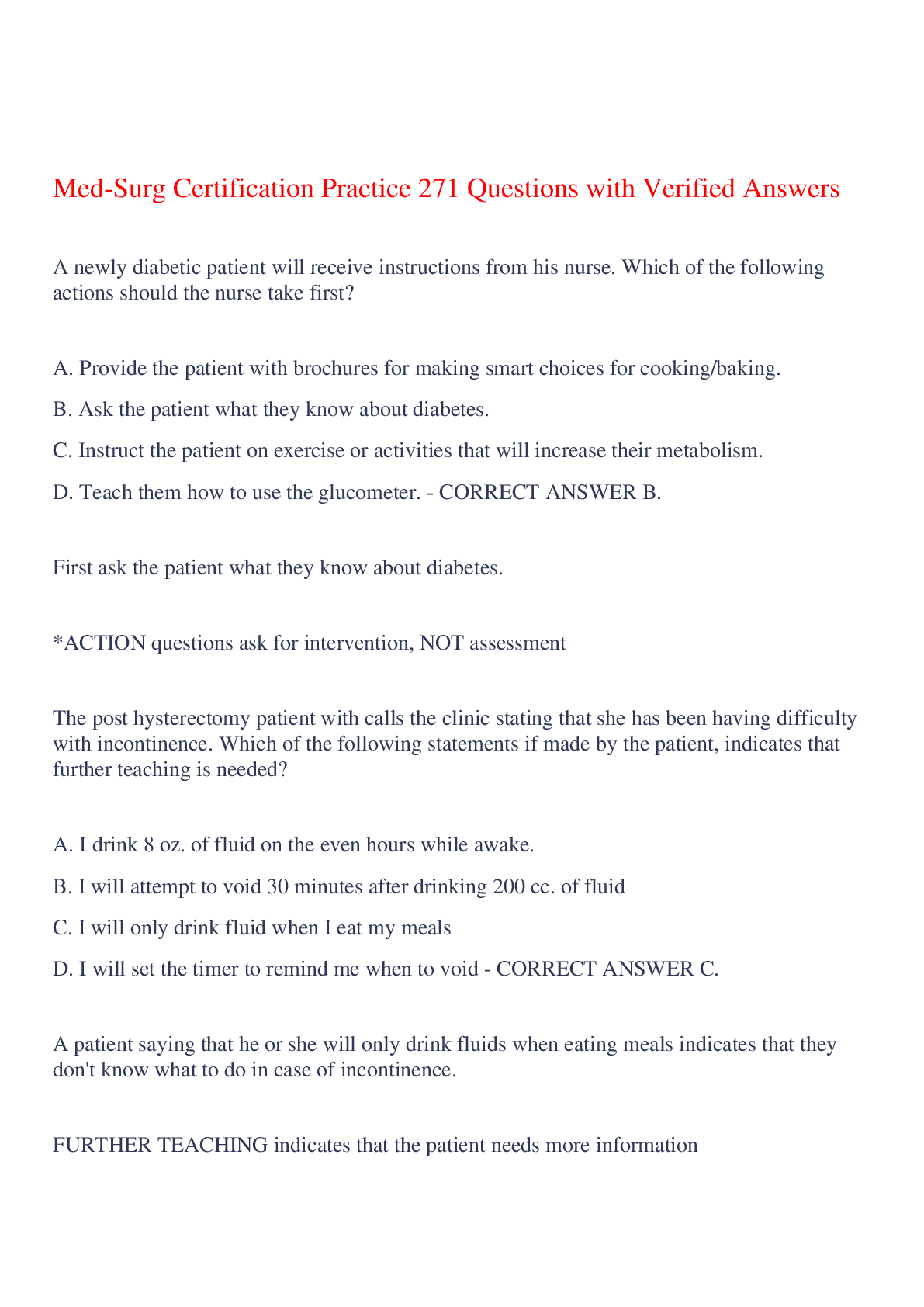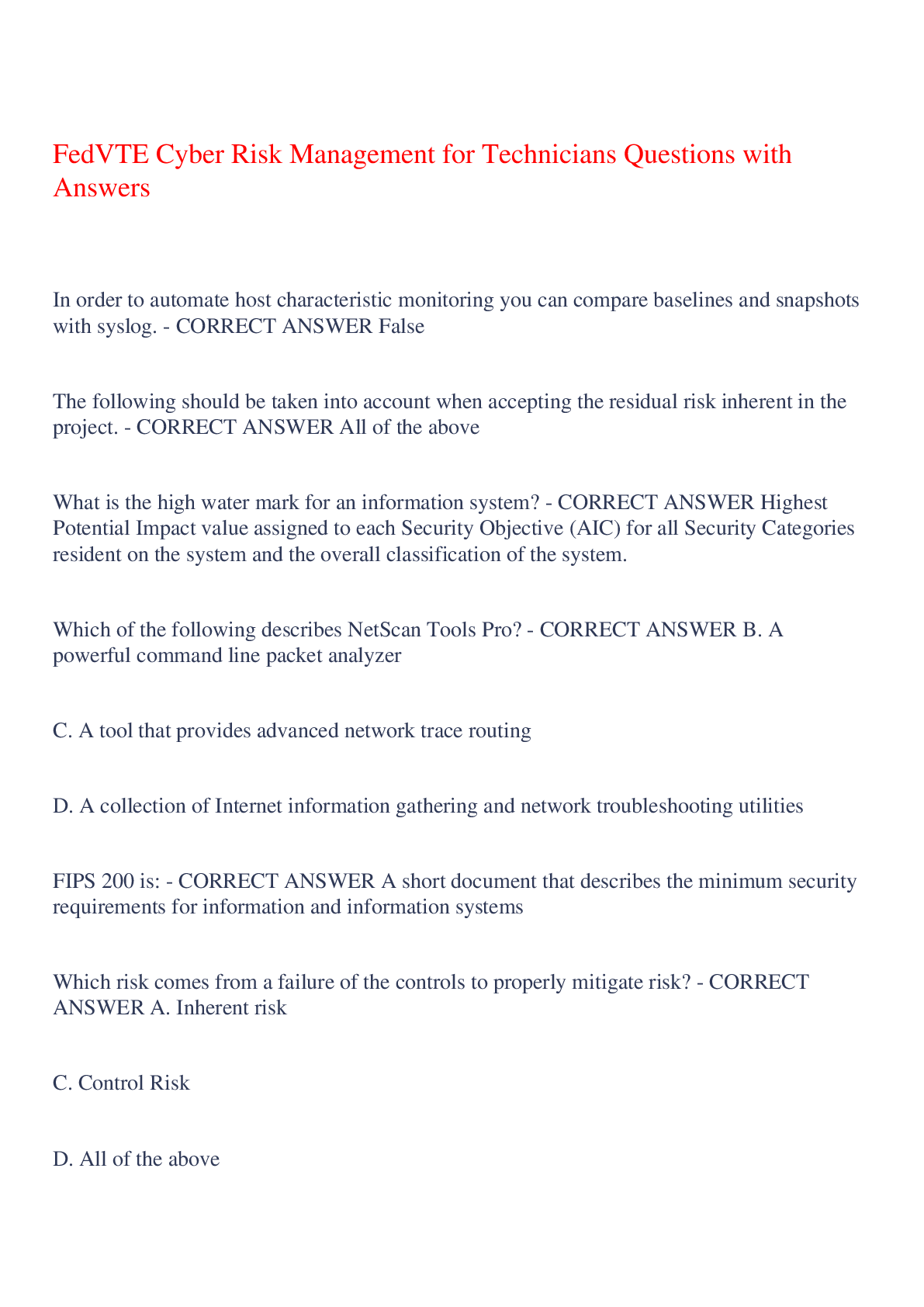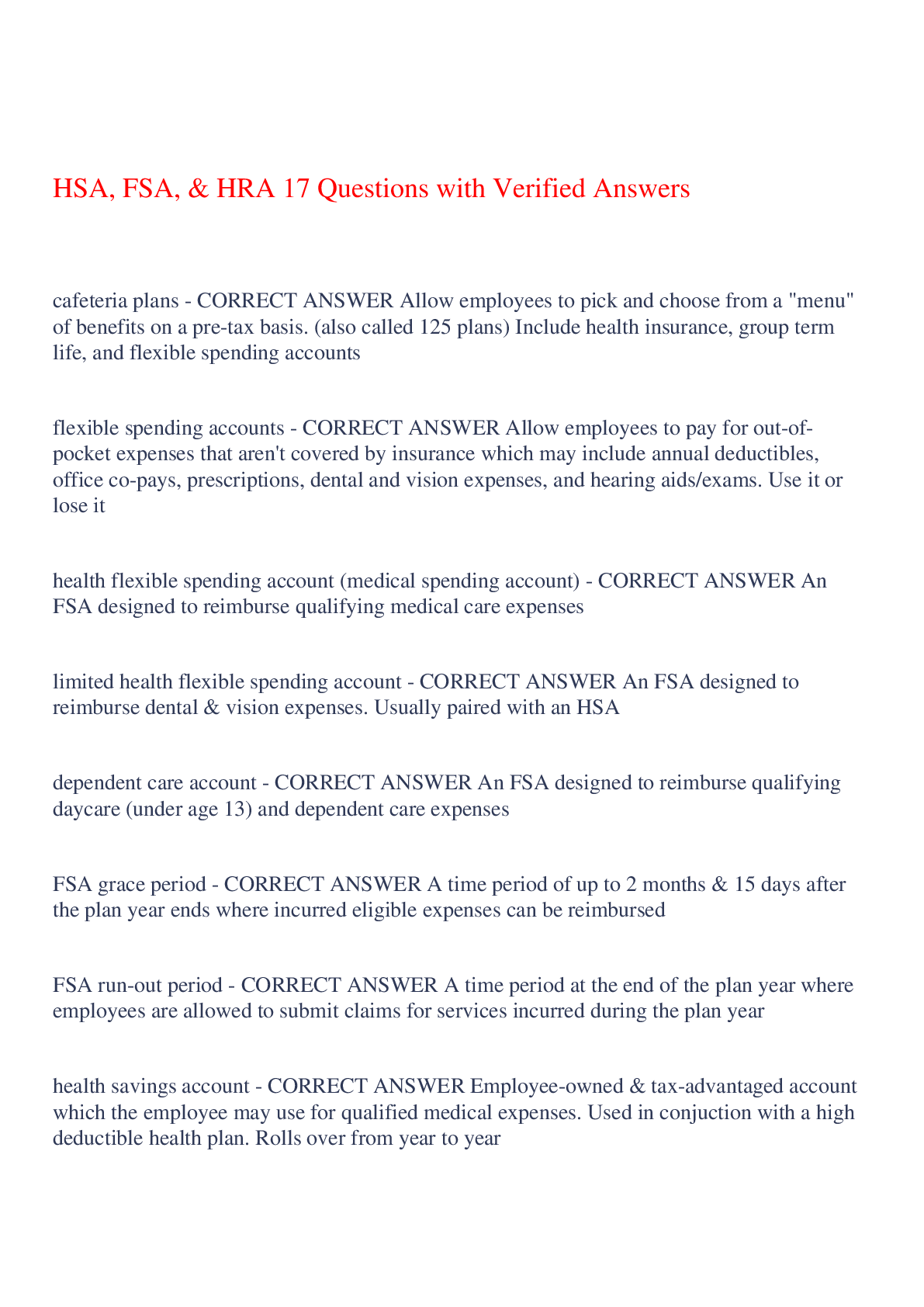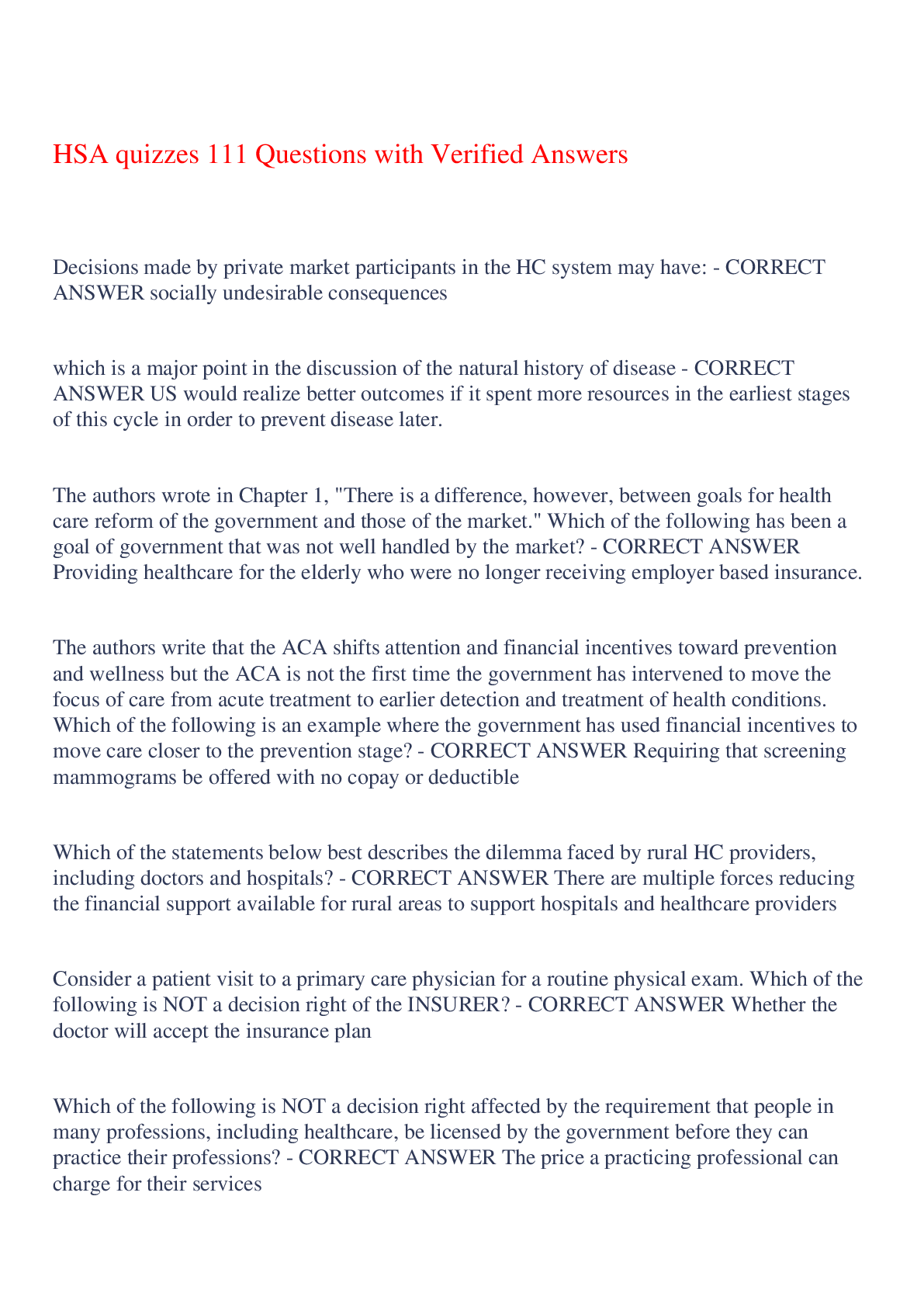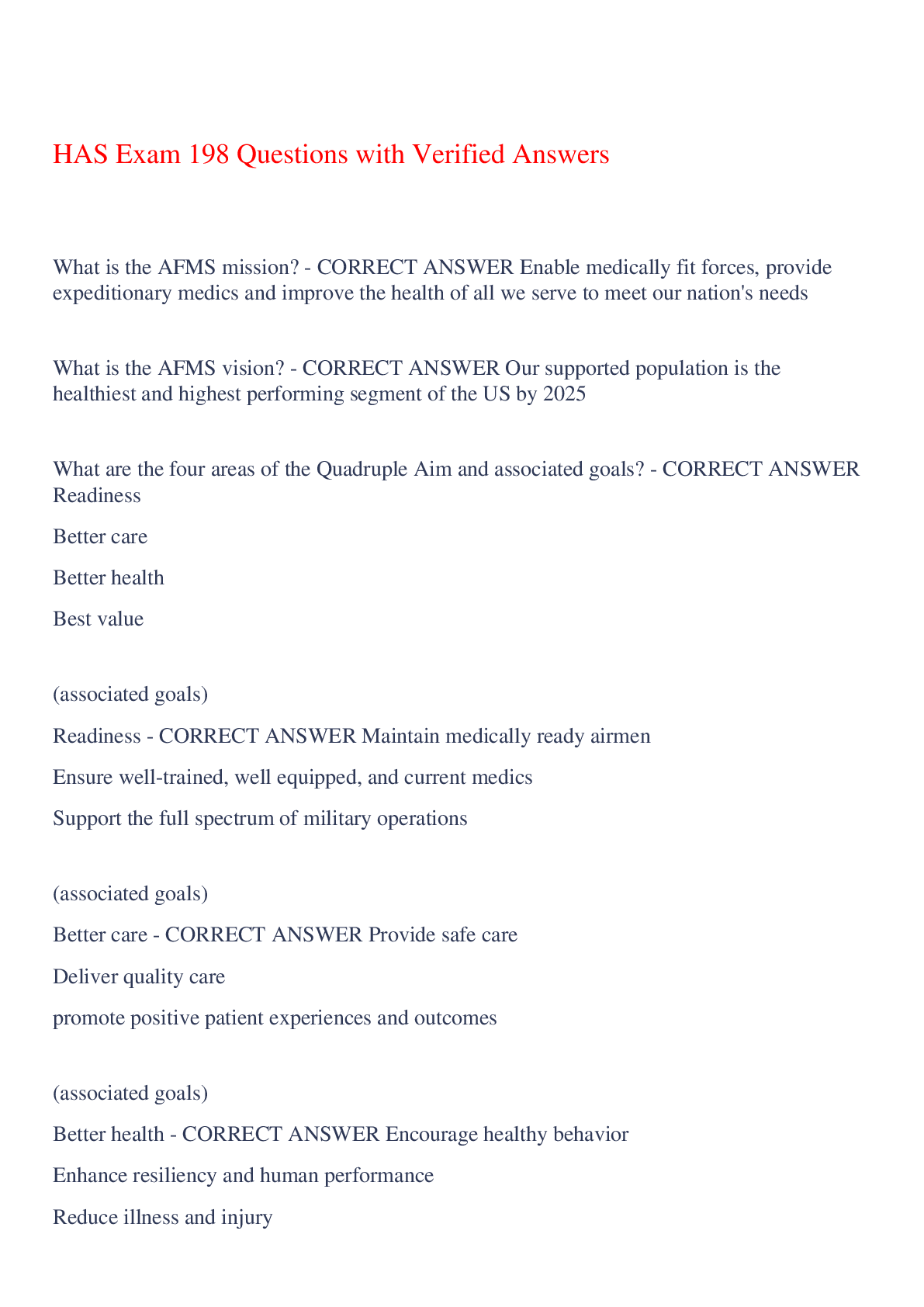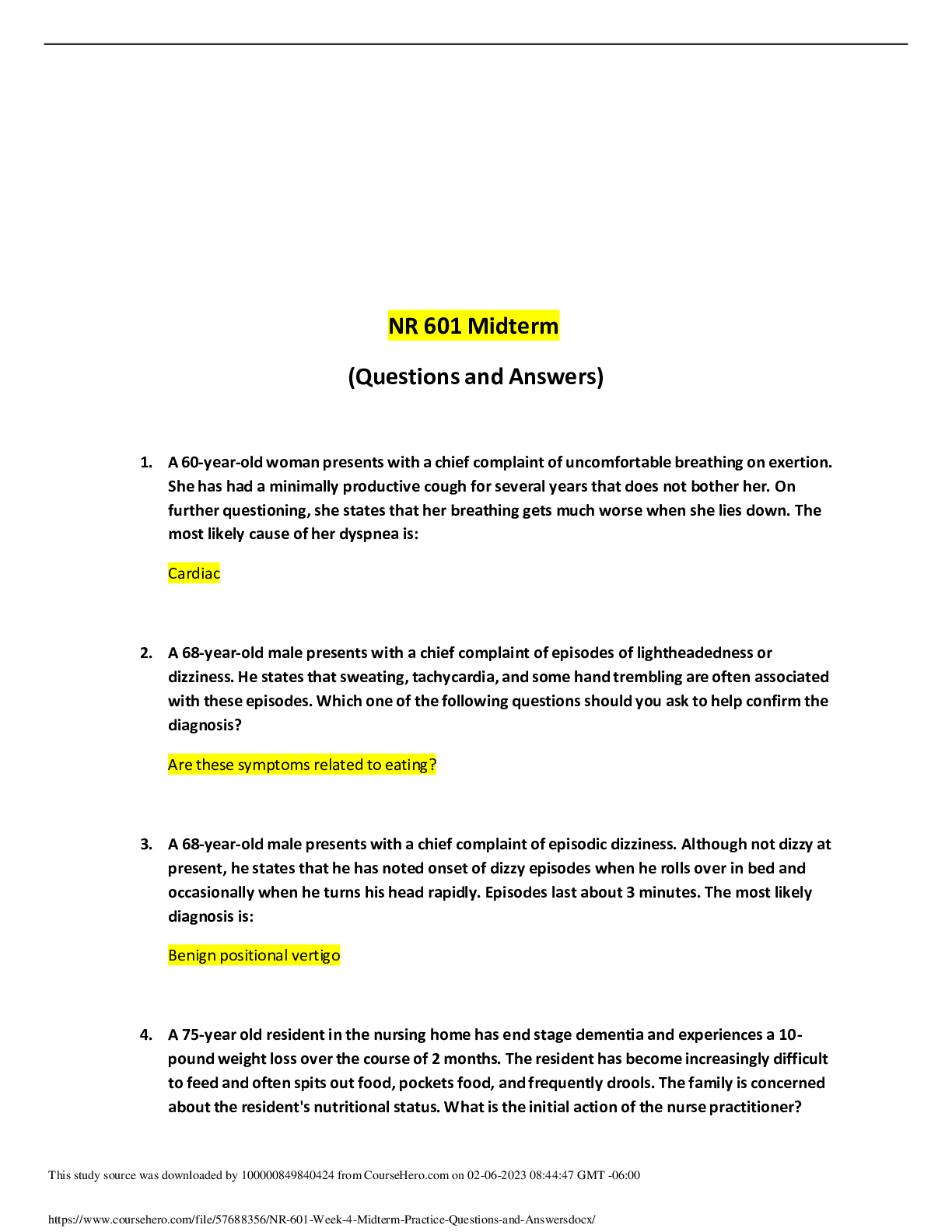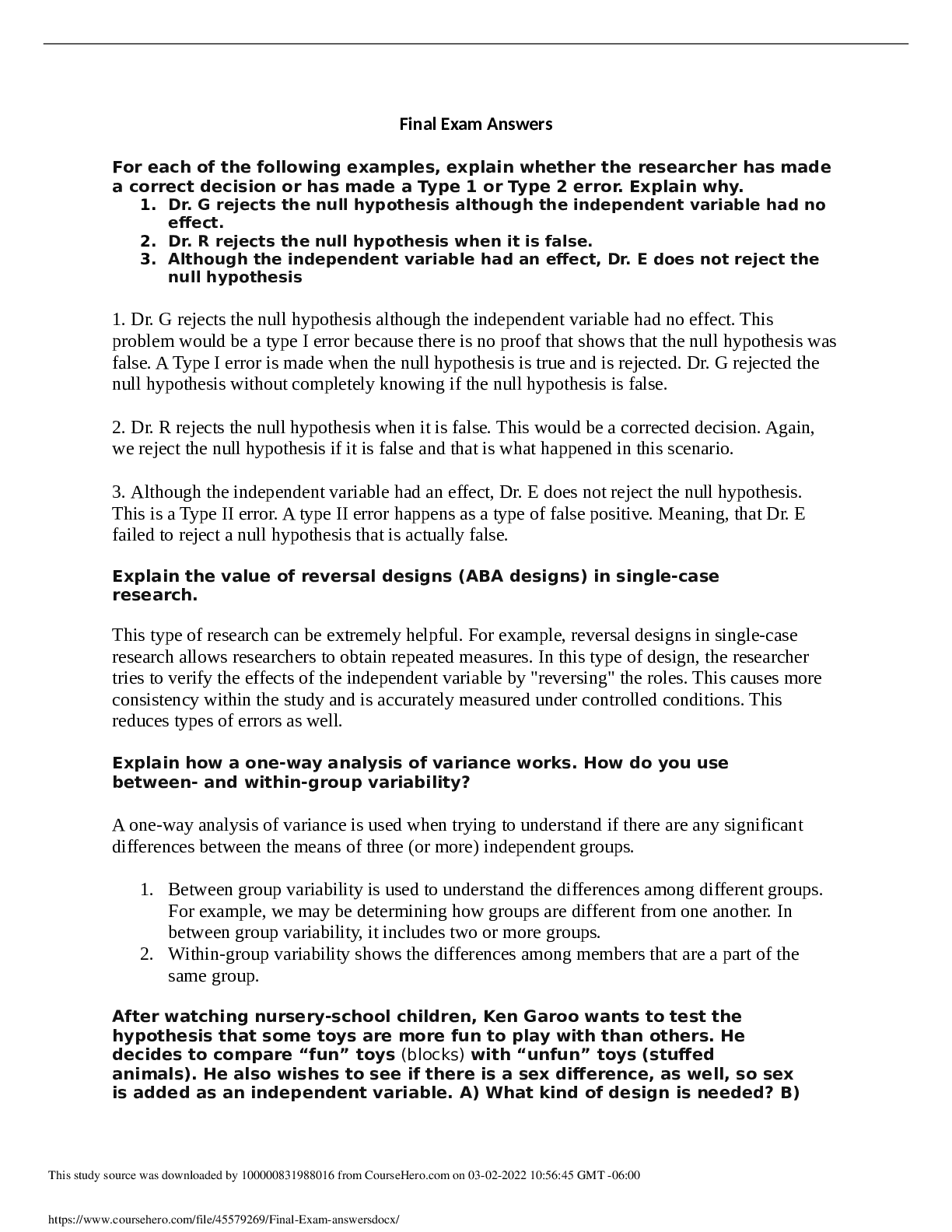SO1050 Sociology Test 4 Questions and Answers,100% CORRECT
Document Content and Description Below
SO1050 Sociology Test 4 Questions and Answers QUESTION 1 1. People in which of these racial/ethnic groups have been the most overrepresented in official crime statistics? a African Americ... ans . b white European Americans . c Native Americans . d Asian/Pacific Islanders . QUESTION 2 1. crimes include robbery, burglary, larceny, motor vehicle theft, and arson. In most of these crimes, the primary motive is to obtain money or some other desired valuable. a Public order . b Organized . c Property . d Violent . QUESTION 3 1. Organized crime thrives primarily because . a there is a high level of political corruption in the United States . b people without other job skills need to make a living . c there is a great demand for illegal goods and services . d people are essentially dishonest, even on the job . QUESTION 4 1. The sociological term for the systematic practices that social groups develop in order to encourage conformity to norms, rules, and laws and to discourage deviance is . a conformity . b justice . c social control . d policing . QUESTION 5 1. Arrest statistics are an accurate reflection of the crimes committed in the United States. a True . b False . QUESTION 6 1. Metropolitan areas have the highest percentage of minority and women police officers. a True . b False . QUESTION 7 1. crime refers primarily to actions such as murder, forcible rape, robbery, and aggravated assault and involves force or the threat of force against others. a Property . b Public order . c Violent . d Organized . QUESTION 8 1. crimes include offenses such as prostitution, illegal gambling, and pornography. a Organized . b Violent . c Public order . d Property . QUESTION 9 1. Violent crime in the United States decreased from 2013 to 2014. a True . b False . QUESTION 10 1. The primary interest of sociologists and criminologists is how societies create and sustain social control. a False . b True . QUESTION 11 1. The term refers to illegal or unethical acts involving the use of power by government officials or illegal/unethical acts perpetrated against the government in efforts to usurp power. a index crime . b occupational crime . c political crime . d corporate crime . QUESTION 12 1. In 1972, the U.S. Supreme Court ruled (in Furman v. Georgia) that the death penalty . a is cruel and unusual punishment . b is legal if imposed fairly and equally . c may applied without limitations according to the laws of each state . d is unconstitutional . QUESTION 13 1. Sociologists believe that there is a set of behaviors within every society that is considered inherently deviant. a False . b True . QUESTION 14 1. Gender, race, and class are closely intertwined with traditional authority. Political scientist Zillah Eisenstein applied the term to the interplay of race and gender that reinforces traditional structures of power in contemporary societies. a gendered ethnicity . b patriarchal . colonization c ethnic genderization . d racialized patriarchy . QUESTION 15 1. How do professions differ from occupations? a Occupations have greater autonomy than professions. . b Professions are only found in the primary sector, unlike occupations, which span . all sectors of employment. c There is no difference between professions and occupations. . d Professions are characterized as having more self-regulation than occupations. . QUESTION 16 1. People are not likely to accept authority as legitimate when . a they are politically dependent on those who hold power . b it reflects their own beliefs and values . c they are threatened with physical force . d they are economically dependent on those in power . QUESTION 17 1. Rational–legal authority is also known as authority, which is based on an organizational structure that includes a clearly defined division of labor, hierarchy of authority, formal rules, and impersonality. a democratic . b capitalistic . c bureaucratic . d routinized . QUESTION 18 1. In Weber’s work on authority, the term authority refers to power legitimized by law or written rules and regulations. a traditional . b coercive . c rational–legal . d charismatic . QUESTION 19 1. Lawful jobs are often part of the underground or shadow economy. a True . b False . QUESTION 20 1. In a system of rational–legal authority, the authority is invested in the . a administrative personnel working for the officeholder . b person holding the office . c office . d political party the person in office belongs to . [Show More]
Last updated: 2 years ago
Preview 1 out of 9 pages

Buy this document to get the full access instantly
Instant Download Access after purchase
Buy NowInstant download
We Accept:

Reviews( 0 )
$12.00
Can't find what you want? Try our AI powered Search
Document information
Connected school, study & course
About the document
Uploaded On
Dec 07, 2021
Number of pages
9
Written in
Additional information
This document has been written for:
Uploaded
Dec 07, 2021
Downloads
0
Views
77


